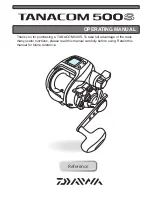
ROTATOR DISC EXERCISES
The following exercises are a sampling of what can be done with the rotator
discs.
Podcasts and additional material are available at Pilates.com.
Standing Rotation
These are classic rotator disc exercises used to assess, correct and balance
the hips in medial and lateral rotation. With the addition of the calibration
marks it is easier to see differences in range of motion on the two sides. These
exercises can focus on hip stability when using the discs without resistance or
strengthening the end ranges of hip or torso mobility when using the discs with
resistance.
Disc:
9” or 12”, heavy or no resistance
Starting position:
Place two discs on the floor as close together as possible
without their edges touching. Align the discs so the cardinal markings are in
line with the feet. Stand on the discs with the feet parallel to each other and the
second toe in line with the cardinal markings. The metatarsals are directly over
the center of the disc.
MOVEMENT SEQUENCES
Each of these options can be performed with the legs straight or with the knees
bent in a plié or a squat position.
»
Lateral or external rotation:
Rotate both legs laterally keeping the
pelvis steady.
»
Medial or internal rotation:
Rotate both legs medially, keeping the
pelvis steady.
»
Rotate one leg at a time:
Rotate one leg medially or laterally while
maintaining the position of the other leg in parallel or in medial or
lateral rotation.
»
Rotate both legs in the same direction:
Rotate both legs to the right or left
keeping the hips facing forward.
»
Twist:
Rotate both legs to the right or left. Feet can be on separate discs or
both feet can be on one disc.
4


































